Introduction
In the dynamic world of artificial intelligence, ChatGPT stands as a remarkable conversational AI developed by OpenAI. It has revolutionized the way we interact with machines, offering a human-like conversational experience. However, the AI landscape is vast and diverse, with numerous ChatGPT alternatives emerging, each bringing unique capabilities to the table.
These alternatives are pushing the boundaries of what conversational AI can achieve, fostering a competitive and innovative environment.
This guide will delve into the world of ChatGPT, its strengths and weaknesses, and explore the top ChatGPT alternatives that are shaping the future of AI in 2023.
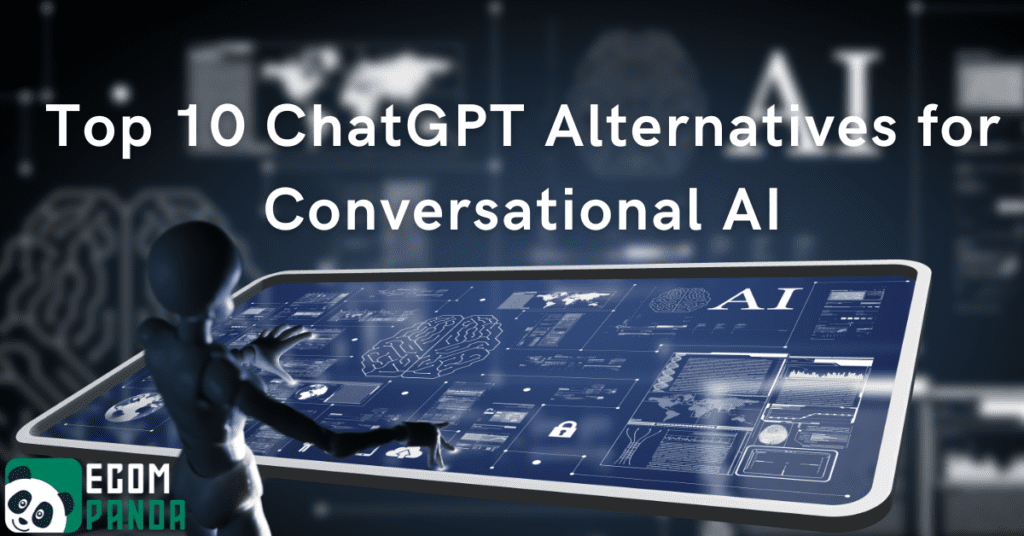
Table of Contents
Understanding ChatGPT: Its Purpose and Applications
ChatGPT, a product of OpenAI, is a conversational AI model that has been making waves in the technology sector. But what exactly is ChatGPT, and how is it used in our everyday lives?
The Concept Behind ChatGPT
ChatGPT is built on the GPT (Generative Pretrained Transformer) model, a machine learning framework that uses natural language processing for understanding and generating human-like text. The ‘chat’ in ChatGPT signifies its primary function: to engage in meaningful and coherent conversations with users. It’s trained on a diverse range of internet text, but it’s not just a simple parrot. The model generates creative responses and can even provide explanations or answer queries within its training data up until September 2021.
Practical Uses of ChatGPT
The applications of ChatGPT are vast and varied. It’s used in customer service to handle queries and provide instant support, reducing wait times and improving customer satisfaction. In education, it assists students with homework, offering explanations and tutoring in various subjects.
Businesses use it to automate emails and other written communications, saving time and resources. It’s also used in content creation, generating creative writing, SEO, coding assistance and even website creation including landing pages.
In essence, ChatGPT is a powerful tool that’s transforming the way we interact with technology, making AI more accessible and useful in our daily lives. As we continue to explore its potential, we can expect to see even more innovative applications in the future.
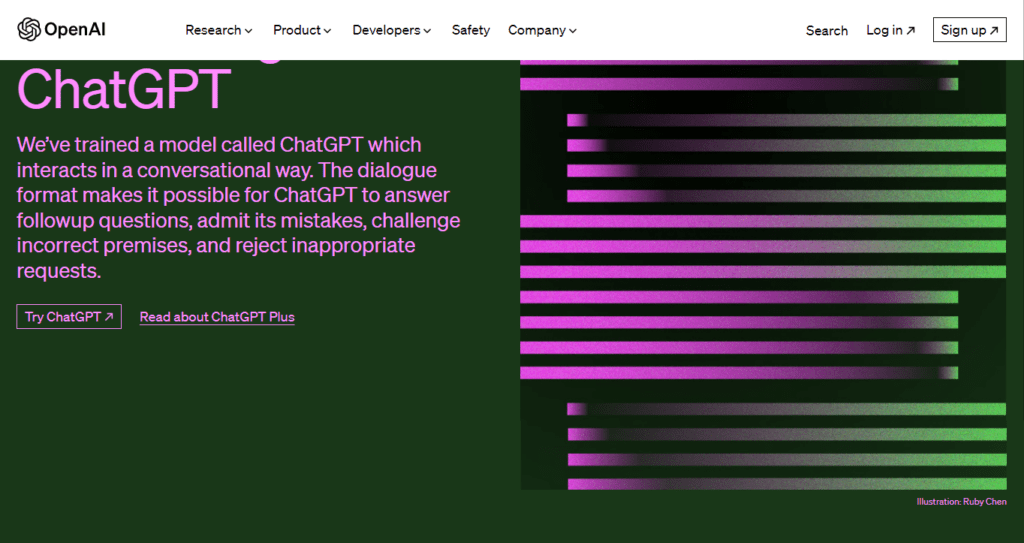
The Strengths and Weaknesses of ChatGPT
ChatGPT, developed by OpenAI, has been a game-changer in the realm of conversational AI. However, like any technology, it has its strengths and weaknesses. Understanding these can help us make informed decisions about its use and identify areas where ChatGPT alternatives might offer additional benefits.
Advantages of ChatGPT
ChatGPT has several key strengths that have contributed to its popularity:
Human-like Interaction: ChatGPT can generate responses that are remarkably similar to human conversation. This makes it an excellent tool for customer service, tutoring, content creation, and more.
Versatility: The model can be used across various sectors, from education and business to entertainment and personal assistance. This versatility makes it a valuable online tool in many different contexts.
Scalability: ChatGPT can handle a high volume of queries simultaneously, making it a cost-effective solution for businesses that need to manage large amounts of customer interactions.
Continuous Learning: OpenAI regularly updates ChatGPT, improving its capabilities and expanding its knowledge base. This ensures that the model stays relevant and continues to provide value.
Limitations of ChatGPT
Despite its strengths, ChatGPT also has some limitations that users should be aware of:
Limited Understanding: While ChatGPT can generate human-like responses, it doesn’t truly understand the content it’s processing. This can sometimes lead to incorrect or nonsensical responses.
Data Privacy: As ChatGPT is trained on a vast amount of internet text, there can be concerns about data privacy and the potential for the model to generate sensitive or inappropriate content.
Dependency on Training Data: ChatGPT’s knowledge is limited to the data it was trained on. It cannot access or understand information or events that occurred after its last training cut-off in September 2021.
Lack of Personalization: While ChatGPT can generate diverse responses, it doesn’t have the ability to remember past interactions or learn from specific user inputs over time. This can limit its ability to provide personalized experiences.
These limitations highlight areas where ChatGPT alternatives might excel. For instance, some ChatGPT alternatives might offer better personalization, improved understanding of context, or more robust data privacy measures. As the AI landscape continues to evolve, it’s important to stay informed about the strengths and weaknesses of different tools, including ChatGPT and ChatGPT alternatives. This knowledge can help us make the most of the exciting opportunities that AI technology offers.
Top 10 ChatGPT Alternatives in 2023
As the AI landscape continues to evolve, several ChatGPT alternatives have emerged, each with its unique features and capabilities.
Let’s discuss them briefly.
Google Bard
Google Bard is a conversational AI developed by Google and considered one of the best ChatGPT alternatives. It’s designed to provide a seamless conversational experience, making it a strong competitor to ChatGPT. Here are some of its key features:
Contextual Understanding: Google Bard is designed to understand the context of a conversation better. This allows it to provide more relevant and accurate responses.
Multilingual Support: Google Bard supports multiple languages, making it a versatile tool for global communication.
Integration with Google Services: Being a Google product, Bard can be integrated with other Google services, providing a cohesive user experience.
Continuous Learning: Google Bard is continually updated with new data, allowing it to stay current with recent events and information.
Customization: Google Bard allows for customization, enabling businesses to tailor the AI’s responses to fit their brand voice and specific needs.
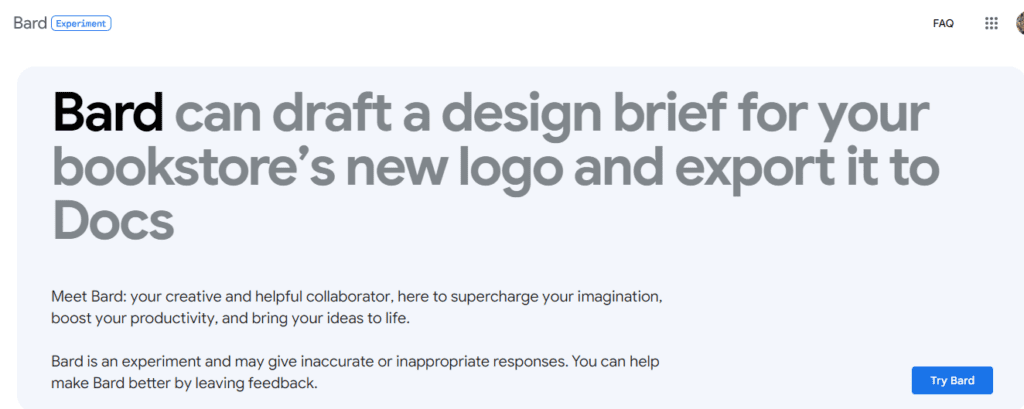
Microsoft Bing Chat
Microsoft Bing Chat is another strong alternative to ChatGPT. Developed by Microsoft, it leverages the company’s vast resources and expertise in AI. Here are some of its standout features:
Real-time Translation: Bing Chat offers real-time translation, making it a powerful tool for international communication.
Integration with Microsoft Ecosystem: Bing Chat can be integrated with the broader Microsoft ecosystem, including Office 365 and Microsoft Teams. This makes it a convenient choice for businesses already using these platforms.
Advanced Search Capabilities: Bing Chat leverages Microsoft’s search engine capabilities to provide more accurate and comprehensive responses.
Scalability: Bing Chat is designed to handle high volumes of queries, making it a cost-effective solution for businesses with high customer interaction.
Privacy and Security: Microsoft has a strong focus on privacy and security, and Bing Chat is designed with these principles in mind.
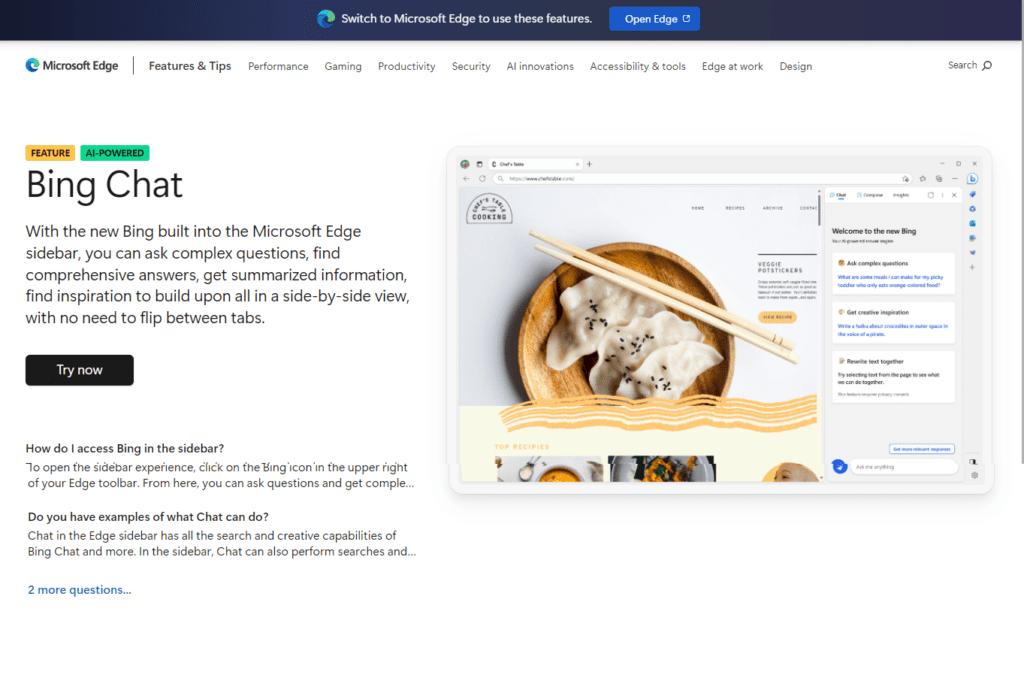
Jasper.ai
Jasper.ai is another notable alternative to ChatGPT, carving out a niche for itself as an AI powerhouse. It’s designed to provide a robust and versatile AI solution for businesses and individuals alike. Here are some of its key features:
Advanced Natural Language Processing: Jasper.ai leverages advanced NLP techniques to understand and generate human-like text, providing a seamless conversational experience.
Customization: Jasper.ai offers extensive customization options, allowing businesses to tailor the AI’s responses to their specific needs and brand voice.
Integration Capabilities: Jasper.ai can be integrated with various platforms and services, providing a cohesive and convenient user experience.
Scalability: Jasper.ai is designed to handle high volumes of queries, making it a cost-effective solution for businesses with high customer interaction.
Continuous Learning: Jasper.ai is continually updated with new data, allowing it to stay current with recent events and information.
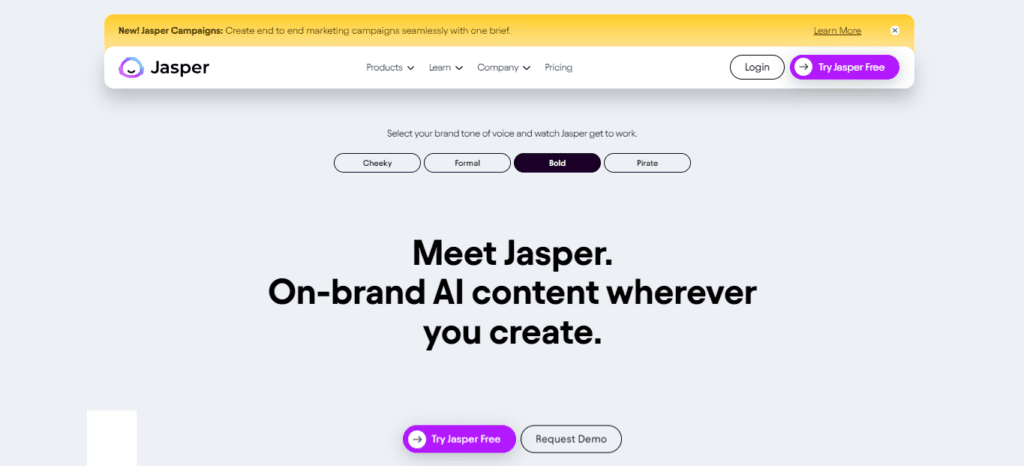
Claude
Claude is an emerging player in the AI landscape, offering a unique approach to conversational AI. While it’s a newer entrant, it’s quickly gaining recognition for its innovative features. Here are some of its standout features:
Contextual Understanding: Claude is designed to understand the context of a conversation better, providing more relevant and accurate responses.
Emotion Recognition: One of Claude’s unique features is its ability to recognize emotions in text, allowing it to respond in a more empathetic and human-like manner.
Multilingual Support: Claude supports multiple languages, making it a versatile tool for global communication.
Privacy-Focused: Claude places a strong emphasis on privacy, ensuring that user data is handled securely and responsibly.
User-Friendly Interface: Claude is designed with a user-friendly interface, making it easy for users of all skill levels to interact with the AI.
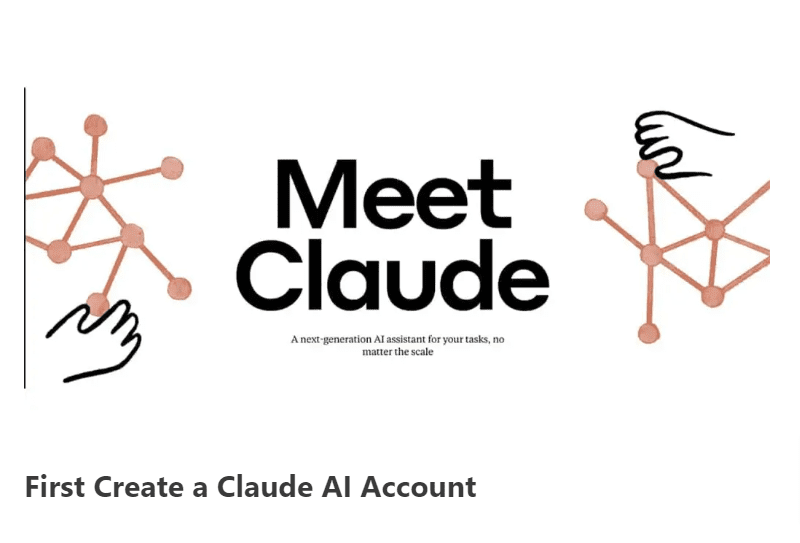
ChatSonic
ChatSonic is another alternative to ChatGPT, known for its speed and efficiency. It’s designed to provide fast, accurate responses, making it an excellent tool for customer service and other high-volume applications. Here are some of its key features:
Speed: ChatSonic (a powerful feature by Writesonic) is designed for speed, providing fast responses to user queries. This makes it an excellent choice for businesses that need to handle high volumes of customer interactions.
Integration Capabilities: ChatSonic can be integrated with various platforms and services, providing a cohesive and convenient user experience.
Customization: ChatSonic offers extensive customization options, allowing businesses to tailor the AI’s responses to their specific needs and brand voice.
Advanced Search Capabilities: ChatSonic leverages advanced search capabilities to provide more accurate and comprehensive responses.
Scalability: ChatSonic is designed to handle high volumes of queries, making it a cost-effective solution for businesses with high customer interaction.
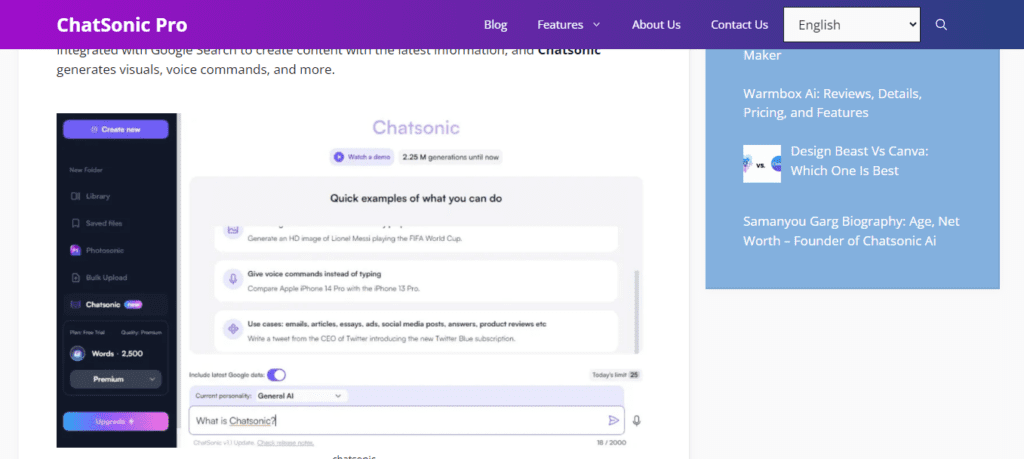
NeevaAI
NeevaAI is a revolutionary AI platform that’s making a significant impact in the AI industry. It’s designed to provide a comprehensive AI solution that can be tailored to a wide range of applications. Here are some of its key features:
Advanced Machine Learning: NeevaAI leverages advanced machine learning techniques to understand and generate human-like text, providing a seamless conversational experience.
Customization: NeevaAI offers extensive customization options, allowing businesses to tailor the AI’s responses to their specific needs and brand voice.
Integration Capabilities: NeevaAI can be integrated with various platforms and services, providing a cohesive and convenient user experience.
Scalability: NeevaAI is designed to handle high volumes of queries, making it a cost-effective solution for businesses with high customer interaction.
Continuous Learning: NeevaAI is continually updated with new data, allowing it to stay current with recent events and information.
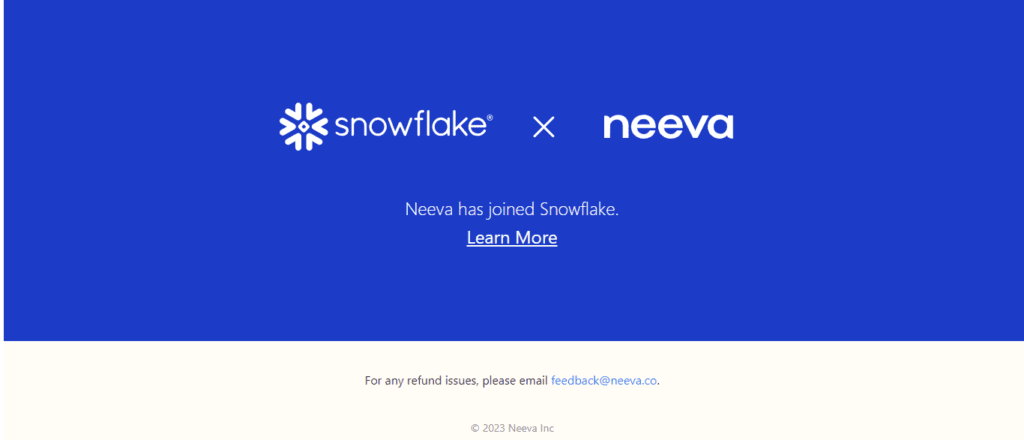
YouChat
YouChat is a personalized AI chat platform that’s designed to provide a more personalized and engaging conversational experience. Here are some of its standout features:
Personalization: YouChat is designed to provide a personalized conversational experience, learning from each interaction to provide more relevant and engaging responses.
Emotion Recognition: One of YouChat’s unique features is its ability to recognize emotions in text, allowing it to respond in a more empathetic and human-like manner.
Multilingual Support: YouChat supports multiple languages, making it a versatile tool for global communication.
Privacy-Focused: YouChat places a strong emphasis on privacy, ensuring that user data is handled securely and responsibly.
User-Friendly Interface: YouChat is designed with a user-friendly interface, making it easy for users of all skill levels to interact with the AI.
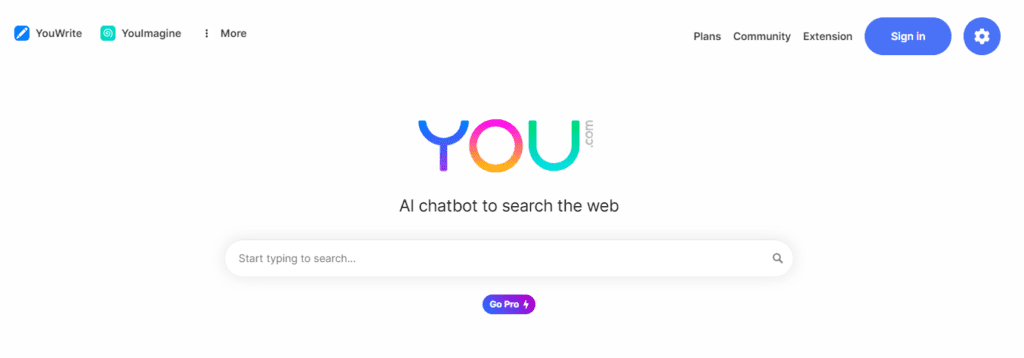
Perplexity
Perplexity is an AI platform that’s known for its unique approach to conversational AI. It’s designed to provide a more nuanced and complex conversational experience, making it a standout in the AI landscape. Here are some of its key features:
Complex Conversational Capabilities: Perplexity is designed to handle complex conversations, providing nuanced and detailed responses that go beyond the capabilities of many other AI platforms.
Customization: Perplexity offers extensive customization options, allowing businesses to tailor the AI’s responses to their specific needs and brand voice.
Integration Capabilities: Perplexity can be integrated with various platforms and services, providing a cohesive and convenient user experience.
Scalability: Perplexity is designed to handle high volumes of queries, making it a cost-effective solution for businesses with high customer interaction.
Continuous Learning: Perplexity is continually updated with new data, allowing it to stay current with recent events and information.
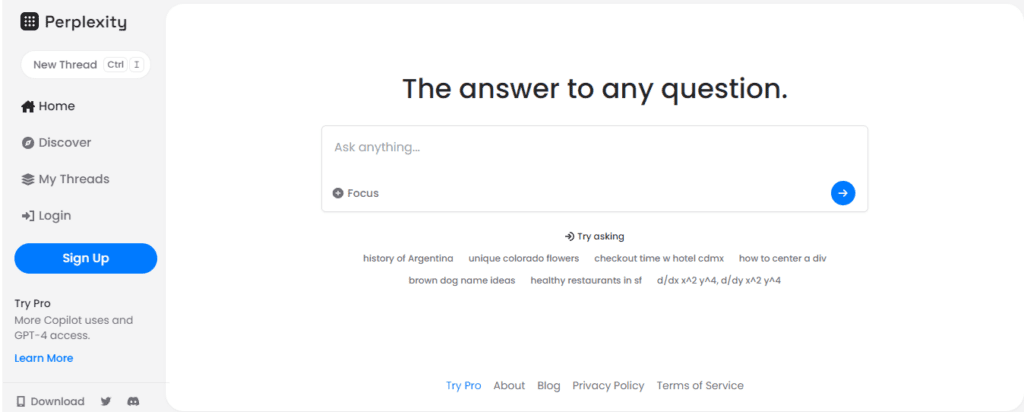
Character.AI
Character.AI is a unique AI platform that stands out for its focus on creating AI with distinct personalities. This makes interactions with the AI more engaging and human-like. Here are some of its key features:
Personality-Driven AI: Character.AI is designed to create AI with distinct personalities, making interactions more engaging and human-like.
Customization: Character.AI offers extensive customization options, allowing businesses to tailor the AI’s personality and responses to their specific needs and brand voice.
Integration Capabilities: Character.AI can be integrated with various platforms and services, providing a cohesive and convenient user experience.
Scalability: Character.AI is designed to handle high volumes of queries, making it a cost-effective solution for businesses with high customer interaction.
Continuous Learning: Character.AI is continually updated with new data, allowing it to stay current with recent events and information.

Elicit
Elicit is an AI platform known for its advanced conversational capabilities. It’s designed to provide a more nuanced and complex conversational experience, making it a standout in the AI landscape. Here are some of its key features:
Advanced Conversational Capabilities: Elicit is designed to handle complex conversations, providing nuanced and detailed responses that go beyond the capabilities of many other AI platforms.
Customization: Elicit offers extensive customization options, allowing businesses to tailor the AI’s responses to their specific needs and brand voice.
Integration Capabilities: Elicit can be integrated with various platforms and services, providing a cohesive and convenient user experience.
Scalability: Elicit is designed to handle high volumes of queries, making it a cost-effective solution for businesses with high customer interaction.
Continuous Learning: Elicit is continually updated with new data, allowing it to stay current with recent events and information.
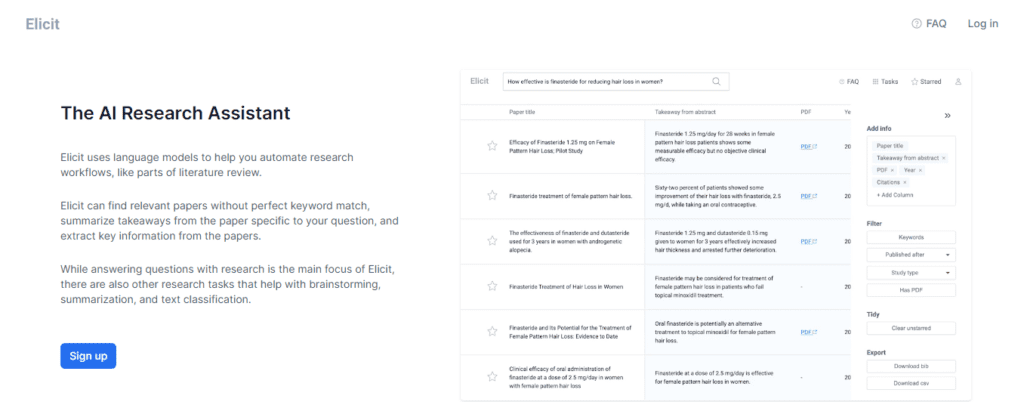
The AI landscape in 2023 is rich with ChatGPT’s alternatives, each offering unique features and capabilities. From Google Bard’s contextual understanding and integration with Google services, Microsoft Bing Chat’s real-time translation and advanced search capabilities, to the personalized AI chat of YouChat and the complex conversational capabilities of Perplexity.
Not to forget the AI powerhouses like Jasper.ai, emerging players like Claude, speed-focused ChatSonic, revolutionary NeevaAI, personality-driven Character.AI, and Elicit, the AI whisperer. Each of these platforms is pushing the boundaries of what conversational AI can achieve, offering businesses and individuals a wide range of options to suit their specific needs.
ChatGPT and the Future of the AI Marketplace
As we look towards the future of the AI marketplace, it’s clear that conversational AI, like ChatGPT, will play a significant role. The advancements in AI and chatbot technology are not only transforming the way businesses operate but also how individuals interact with technology on a daily basis.
Predicted Trends in AI and Chatbot Technology
Several trends are expected to shape the future of AI and chatbot technology:
Increased Personalization: As AI technology becomes more sophisticated, we can expect to see an increase in the level of personalization that chatbots can offer. This means that chatbots will be able to tailor their responses and interactions based on individual user preferences and past interactions.
Improved Contextual Understanding: Future chatbots are likely to have a better understanding of context, allowing them to provide more relevant and accurate responses. This will be achieved through advancements in natural language processing and machine learning algorithms.
Integration with IoT Devices: As the Internet of Things (IoT) continues to grow, we can expect to see more integration between chatbots and IoT devices. This will allow users to interact with their smart devices through conversational AI.
Voice-Activated Chatbots: With the rise of voice assistants like Alexa and Siri, it’s likely that more chatbots will become voice-activated. This will make interacting with chatbots more seamless and natural.
Enhanced Security: As chatbots handle more sensitive data, there will be an increased focus on ensuring that these interactions are secure. This will involve advancements in encryption and data protection measures.
ChatGPT’s Role in the Evolving AI Landscape
ChatGPT, developed by OpenAI, is at the forefront of these advancements. Its ability to generate human-like text and engage in meaningful conversations has already made it a valuable tool in various sectors, from customer service to education.
As the AI landscape continues to evolve, ChatGPT is likely to play a significant role in shaping the future of conversational AI:
Driving Innovation: ChatGPT’s success has spurred innovation in the AI marketplace, with many new chatbot technologies emerging as one of the famous ChatGPT alternatives . This competitive environment is likely to drive further advancements in AI technology.
Setting Standards: ChatGPT has set a high standard for what conversational AI can achieve. Future chatbots will likely be compared to ChatGPT in terms of their conversational abilities and versatility.
Expanding Applications: As ChatGPT continues to improve, we can expect to see it used in more applications. This could include more advanced customer service applications, tutoring in more complex subjects, and even creative writing and content generation.
Promoting Ethical AI Use: OpenAI’s focus on ensuring that AI is used for the benefit of all humanity means that ChatGPT is likely to continue promoting ethical AI use. This includes ensuring that AI technology is accessible, respects user privacy, and is used responsibly.
In conclusion, the future of the AI marketplace looks promising, with conversational AI like ChatGPT leading the way. As we continue to explore the potential of this technology, we can expect to see even more innovative applications, ChatGPT alternatives, and advancements in the years to come.
Key Takeaways
The exploration of ChatGPT and key ChatGPT alternatives in the AI marketplace reveals a dynamic and rapidly evolving landscape. ChatGPT, with its human-like conversational abilities, has set a high standard in the field. However, the emergence of various ChatGPT alternatives, each with unique features and capabilities, indicates a vibrant and competitive environment that is driving innovation and expanding the possibilities of conversational AI.
Key takeaways from the discussion include:
Diverse AI Landscape: The AI marketplace is diverse, with several strong ChatGPT alternatives including Google Bard, Microsoft Bing Chat, Jasper.ai, Claude, ChatSonic, NeevaAI, YouChat, Perplexity, Character.AI, and Elicit. Each brings unique features to the table, offering businesses and individuals a wide range of options to suit their specific needs.
Continuous Innovation: The success of ChatGPT has spurred continuous innovation in the AI marketplace. New technologies are emerging, pushing the boundaries of what conversational AI can achieve.
Future Trends: The future of AI and chatbot technology is likely to see increased personalization, improved contextual understanding, integration with IoT devices, voice-activated chatbots, and enhanced security.
ChatGPT’s Role: ChatGPT plays a significant role in the evolving AI landscape, driving innovation, setting standards, expanding applications, and promoting ethical AI use.
In conclusion, the exploration of ChatGPT alternatives provides valuable insights into the current state and future direction of the AI marketplace. As AI technology continues to advance, it’s crucial to stay informed about these developments. This knowledge can help us make the most of the exciting opportunities that AI technology offers, whether we choose to use ChatGPT or one of the many ChatGPT alternatives.
Frequently Asked Questions
Is there a better AI than ChatGPT?
ChatGPT is highly advanced, alternatives like Google Bard, Microsoft Bing Chat, or Jasper.ai may offer features that better align with certain requirements.
What is an alternative to ChatGPT?
There are several ChatGPT's alternatives, including Google Bard, Microsoft Bing Chat, Jasper.ai, Claude, ChatSonic, NeevaAI, YouChat, Perplexity, Character.AI, and Elicit. Each has unique features and capabilities.
What is Better than ChatGPT for Code?
While ChatGPT can assist with coding, specialized tools like GitHub's Copilot may offer more advanced capabilities for code generation and assistance
Is Google Bard better than ChatGPT?
Google Bard and ChatGPT each have their strengths. Bard's integration with Google services and multilingual support are notable, but "better" ultimately depends on specific use cases and requirements.
Are there any free alternatives to ChatGPT?
Yes, there are several free ChatGPT's alternatives, including:
- Rasa
- Botpress
- ChatterBot
- Wit.ai
- Dialogflow (offers a free tier)
- Microsoft Bot Framework (offers a free tier)
What is more advanced than ChatGPT?
Determining what is more advanced than ChatGPT largely depends on the specific use case or requirements. For instance, if you're looking for an AI with a focus on coding assistance, GitHub's Copilot might be considered more advanced due to its specialized capabilities in code generation and assistance.
If multilingual support and integration with a suite of services is a priority, Google Bard could be seen as more advanced. Similarly, Microsoft Bing Chat's real-time translation feature and integration with the Microsoft ecosystem might make it a more advanced choice for certain businesses.
Therefore, while ChatGPT is indeed a highly sophisticated AI, there are other platforms that might offer more advanced features in specific areas.
What is the smartest AI bot?
The term "smartest" when referring to an AI bot largely depends on the specific criteria one is considering. For instance, IBM's Watson, known for its ability to process and analyze large amounts of data, won Jeopardy! against human contestants, which could be seen as a demonstration of its "smartness".
On the other hand, OpenAI's GPT-3, which powers ChatGPT, is renowned for its advanced language understanding and generation capabilities, which could also be a measure of "smartness". Therefore, the "smartest" AI bot can vary depending on the context and the specific capabilities one values most.
Which AI is better than ChatGPT?
Determining which AI is "better" than ChatGPT depends on specific needs and use cases. While ChatGPT is highly advanced, other platforms like Google Bard or Microsoft Bing Chat may offer features that better align with certain requirements.







